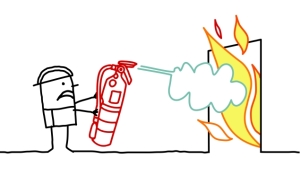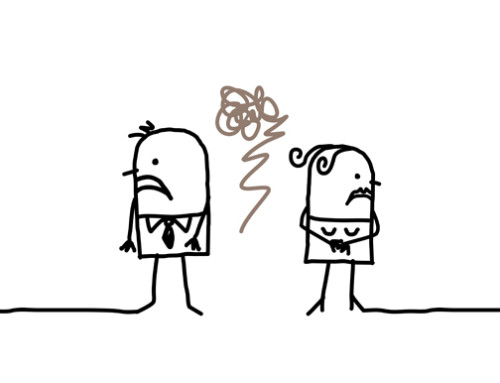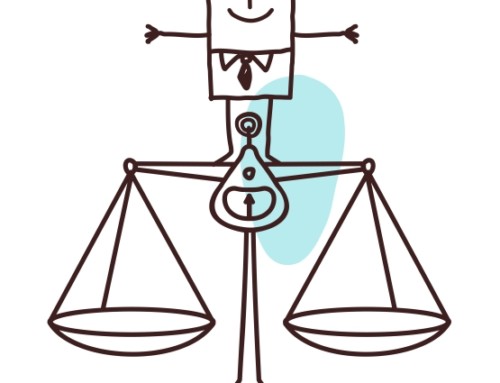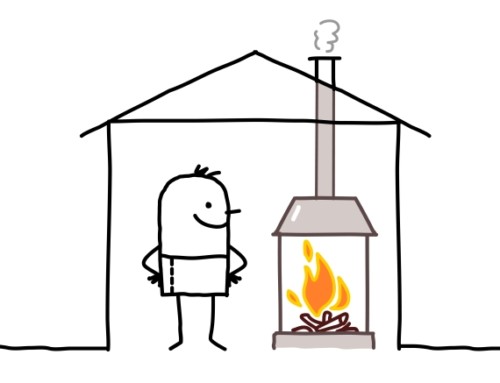In this article, I discuss the relative merits of different options clients can take to address issues involving abusive behaviour in relationships.
In my work as a Calgary psychologist and a Cochrane psychologist, I sometimes work with individuals and couples whose goal is to address abusive behaviour in relationships. This is an issue often entails a pattern in which one partner in a relationship engages in behaviours intended to dominate and control the other partner. This leads to abuse in various forms including verbal and physical.
There are different counselling options for addressing the issue of abuse in relationships. In the following sections, I will discuss these options and their relative merits. The first two options are non-preferred because they are insufficient in addressing the issue. The third option I mention is the recommended one because of its ability to deal with abusive behaviour most effectively.
Non-preferred option 1: Anger management counselling
Anger management counselling for the person who is engaging in abusive behaviour in a relationship can be somewhat helpful in addressing the problem. That is, learning skills to keep your anger at a manageable level and to express the issues underlying your anger in a constructive manner can often decrease the frequency of non-constructive expressions of anger involving abusive behaviour toward your partner. If the partner who has engaged in abusive behaviour comes to anger management counselling taking responsibility and is ready to work hard to learn the skills I mentioned, they are likely to make some progress in addressing the issue.
Despite these potential benefits of anger management counselling in addressing abusive behaviour in a relationship, I typically do not recommend it is as the primary or sole form of therapy for this issue. The reason is that there are elements of the issue of abusive behaviour in a relationship for which anger management counselling is often ineffective in addressing.
These elements are the person’s underlying permissive attitudes toward abusive behaviour. My experience is that is very difficult to help a person to change these attitudes in anger management counselling. In turn, failing to change these attitudes means that although abusive behaviour may decrease in frequency as a result of the person learning and applying anger management skills, given that people are not perfect in their application of these skills it necessarily means that abusive behaviour in the relationship is still likely to occur.
Non-preferred option 2: Couples counselling
Like anger management counselling, couples counselling entails teaching skills which may decrease somewhat the frequency of abuse in a relationship. Among such skills are those in which couples practice how to communicate their points constructively and how to build and maintain a strong relationship friendship.
Unfortunately, even if the two partners make progress in applying these skills, couples counselling is subject to the same limitations as anger management counselling in being able to address abuse in a relationship. That is, couples counselling does not directly address the permissive attitudes toward abuse which are held by the partner who engages in abusive behaviour. As a result, abusive behaviour is still likely to occur even if the application of couples counselling skills leads to a decrease in its frequency.
In addition, although both anger management counselling and couples counselling are typically insufficient in addressing abusive behaviour in a relationship, anger management counselling is the better of these two options because it entails the partner who is engaging in the abuse coming for individual therapy. As such, this individual is at least moving toward taking responsibility for their behaviour and its negative effects.

In couples counselling, the focus is instead on both partners needing to communicate constructively as the key to addressing abusive behavior. This detracts from the partner who is engaging in abuse taking responsibility for their behaviour. There is also the risk that the partner who engages in abusive behaviour will view the other partner’s shortcomings in communication skills as the cause of the problem. In turn, this can reinforce the abusive partner’s view that there are circumstances under which it is acceptable to engage in abusive behaviour.
For these reasons, couples counselling is typically the least preferred option for addressing abusive behaviour in a relationship. The exception would be if the abusive behaviour is engaged in by both partners toward each other rather than featuring the pattern of one partner in the role of perpetrator and the other partner in the role of victim.
The preferred option: Counselling to address abuse in a relationship
The option I would most often recommend to address abusive behaviour in a relationship is counselling by the abusive partner which focuses on this issue. This form of therapy has the goal of identifying and changing attitudes which condone abusive behaviour. This can often entail exploring the origin and history of these attitudes—often they are rooted in the person’s family of origin—as well as how these attitudes and the abusive behaviours stemming from them have been reinforced and maintained in the person’s relationships.
Once the person has become aware of the role these permissive attitudes play in their abusive behaviour in relationships, they can begin the shift toward attitudes which do not permit abusive behaviour. Such a shift moves the person toward an attitude of zero tolerance for abusive behaviour. The result is that even if their anger management and couples counselling skills are not effective in a particular situation, they will not allow themselves to engage in abusive behaviour toward their partner. Counselling to address the abusive behaviour and the attitudes driving it is therefore the best way to decrease the likelihood of abusive behaviour in a relationship.
Research and first-hand experience leads me to recommend group counselling as the best form of therapy to help people address their abusive behaviour in relationships. This format entails having a male and female professional co-facilitator working with a group of clients whose reason for attending the group is to address their abusive behaviour toward partners in relationships. The group dynamics promoted by this format are especially effective in achieving the aforementioned goals involving helping clients to identify and change attitudes which lead to abusive behaviour in relationships.
I saw the excellent results of group therapy to address abusive behaviour in relationships when I worked at the Calgary Counselling Centre (CCC). In my 10-plus years as a psychologist at the CCC, I regularly referred clients to the Responsible Choices group program. The beneficial results I saw my clients attain with that program are supported by research studies demonstrating its effectiveness. As a result, I have continued to refer clients to that group program since I left CCC to work as a psychologist in private practice. There are separate Responsible Choices groups for men and women whose goal is to address their abusive behaviour in relationships.
May you follow the right approach in counselling to address abuse in your relationships,
Dr. Pat





Leave A Comment